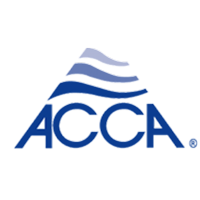
With proper maintenance, your air conditioner can run for 15 years or greater. But even the most well-maintained air conditioner will need to be removed eventually.
When you’re getting started planning for air conditioning installation in Fort Lauderdale, we are aware that the price tops your list of questions. The bright side is that buying a new air conditioner might be more reasonable than you realize, thanks to rebates, our special offers and financing for qualified customers. You’ll also get better energy efficiency, which will typically pay off over the years through lower electricity bills.
Here’s what to anticipate when you’re installing a new air conditioner.
The Best Time to Replace Your Air Conditioner
Knowing when to repair or replace your air conditioner can be hard. Here’s what our pros suggest.
Replace
- Your air conditioner is more than 10 years old. While some could work longer, most air conditioners run for around 15 years with routine maintenance. We suggest getting ready for air conditioning replacement near the 10-year age. Even if you install a new one when it’s only a decade old, the U.S. Department of Energy says this tweak could save you 20-40% on cooling bills.
- You’ve neglected annual maintenance for too long. Just like a car, your cooling system requires routine air conditioning maintenance. Overlooking this critical service can lead to decreased efficiency, more recurring repairs and even a shorter life span.
- Your air conditioner has to have frequent or pricey repairs. Needing air conditioning repair is often the outcome of skipping maintenance But as your air conditioner gets older it’s more likely to have a catastrophic problem. When repairs are higher than half the cost of a new air conditioner, it’s time to get a new one.
- Your home feels unpleasant. If your home feels too sticky or you’re experiencing hot and cold spots in given spaces, your air conditioner may be having difficulty keeping up. This is a sign you should replace it.
- Your utility bills are costly. Your air conditioner loses efficiency as it gets older. As a consequence, it could need to work more often or longer to keep your house at your desired temp. Newer air conditioners have the top energy-efficient technology to keep your home cool and cooling bills low.
- Your air conditioner has R-22 refrigerant. If your air conditioner was installed before 2010, there’s a high likelihood it runs on Freon. Also referred to as R-22, this refrigerant is no longer being made as a result of its bad effects on the environment. You can continue to use your air conditioner, but if it were to experience a refrigerant leak, repairing that would be extremely expensive. This is because R-22 is only available in limited, recycled portions.
Repair
- Your air conditioner is no more than 10 years old. If your air conditioner is newer, it’s wisest to repair it.
- Repairs aren’t common or economical. The smartest way to prevent emergency repairs is to have yearly maintenance scheduled. But when repairs are only needed intermittently or are inexpensive, repair your air conditioner.
- Your air conditioner is covered by a warranty. Most air conditioners are accompanied by a 5- to 10-year limited warranty that usually covers the compressor. Your exact warranty length is up to your manufacturer, but it provides valuable protection in the event of a big failure. If your air conditioner is protected by warranty, we suggest fixing it.
Typical Air Conditioner Cost
Many homeowners spend around $4,631 on a new air conditioner, according to national averages compiled by HomeGuide. Air conditioner cost averages often range from $3,350 to $5,912, but your exact cost {might|could|may] be lower or higher.
There are several details that influence your total cost, such as:
- The air conditioner model you select, because more energy-efficient ones are pricier.
- The size you need.
- If you need to install new ductwork, which can be needed if your ductwork is dated or separated.
We give free estimates at Solar Air Inc. so you can be sure you’re getting a great deal. And with our complete range of air conditioners, there’s an energy-efficient model that fits just about any budget.
The Size of the AC System
Air conditioner size is crucial. A system that’s too little will have difficulty keeping your house cool. And one that’s too large could turn on and off too often, or short cycle. This act can inflate your cooling expenses and wear your air conditioner out prematurely. This could also lead to temperature variability and make your house feel less cool.
At Solar Air Inc., our professionals have many years of experience in accurately sizing and installing the right air conditioner for your home. The size you need depends on how big your house is, in addition to several other factors. Some of the most standard sizes include:
- 2 ton, which cools up to 1,000 square feet
- 3 ton, which cools up to 1,600 square feet
- 4 ton, which cools up to 1,900 square feet
- 5 ton, which cools more than 2,000 square feet
Other factors that can affect air conditioner size are:
- The temperatures in Fort Lauderdale.
- Ductwork quality and age.
- How many windows your home has and the style, because expansive or picture windows can be more inefficient.
- If your home receives more sun or shade.
- Insulation quality and thickness.
- How many people live in your home.
SEER Ratings
Your air conditioner’s efficiency is linked to its SEER, or Seasonal Energy Efficiency Rating. This number measures how well it transforms electricity to create cooling. The bigger the ranking, the more efficient the air conditioner is.
When you’re getting a new air conditioner, it’s crucial to realize:
- Dated air conditioners are ranked around 8-9 SEER.
- Updated air conditioners start at 13 SEER. Ones installed in the southwest and southeast must be a minimum of 14 SEER due to U.S. Department of Energy requirements. As of 2017, these SEER rating requirements have saved homeowners trillions of dollars.
- ENERGY STAR®-certified air conditioners begin at 14.5 SEER.
- Higher SEER-rated air conditioners come with extra features to help you save more. These features may include variable-speed cooling. Instead of running at full speed constantly, these air conditioners can reduce blower speeds customized for your cooling requirements. This results in quieter and more energy-efficient air conditioning. While an air conditioner with a higher SEER rating is typically more expensive, it might be eligible for valuable rebates. And the energy savings over its lifetime could help it pay for itself.
Request a Free Quote for Your Air Conditioning Installation with Solar Air Inc. Now
When you’re preparing for air conditioning replacement, the company who puts it in is just as important as the model you select. Solar Air Inc. is one of the most trusted names for air conditioning installation in Fort Lauderdale. From helping you select the recommended solution for your home to discussing financing options to professional installation, working with our professionals is a breeze. Reach us at 954-320-7398 to get started now!



